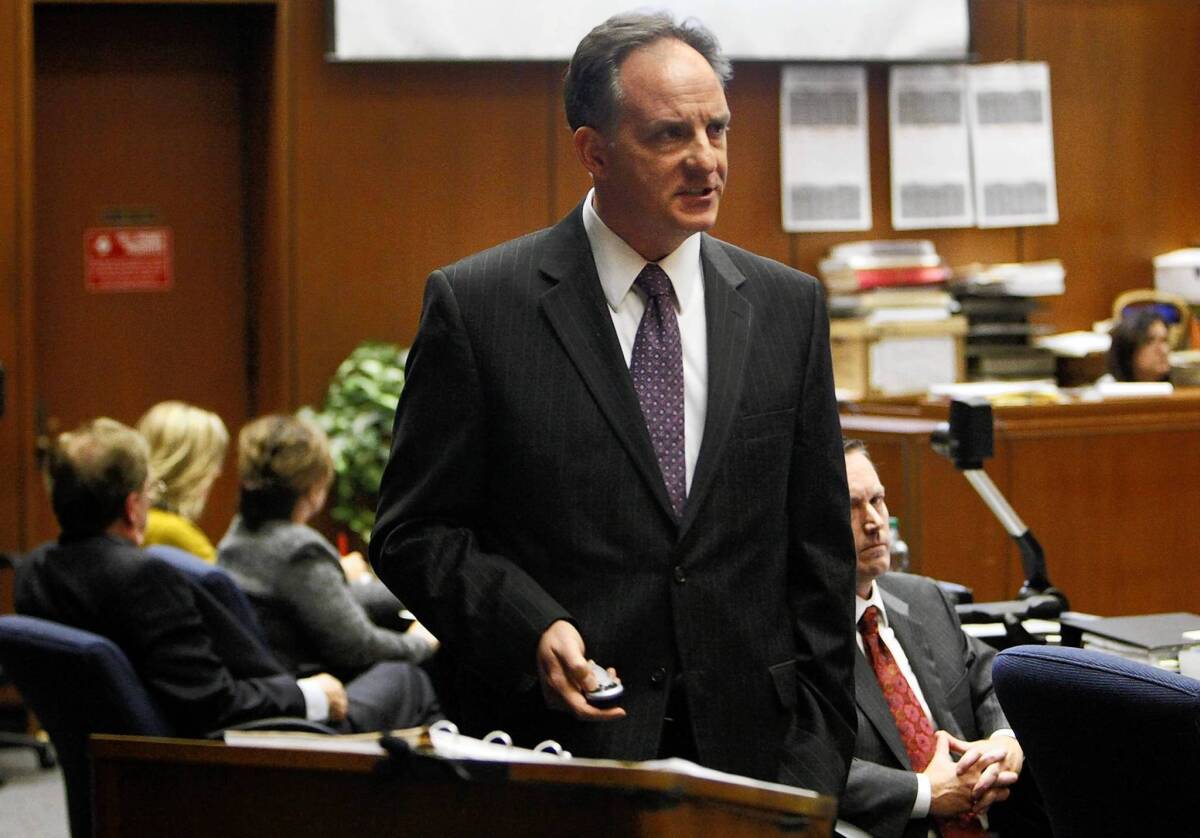L.A. County accused of running afoul of open-meetings law

- Share via
The stated intent of the action was to increase government accountability.
But some open-government advocates are suggesting that the Los Angeles County supervisors ran afoul of the spirit, and perhaps the letter, of the state’s open-meetings law last week when they selected a new watchdog to monitor the Sheriff’s Department.
The board met behind closed doors Nov. 26 and tentatively chose prosecutor Max Huntsman to fill the newly created position of Sheriff’s Department inspector general. County officials did not publicly report the decision, but The Times disclosed it that evening, citing unnamed sources.
Kelly Aviles, vice president for governmental compliance for the open-government group Californians Aware, said county officials should have immediately reported their decision to offer the job to Huntsman under the state’s Ralph M. Brown Act, which governs the actions that elected officials can take outside the public eye.
“It sounds pretty much like the board voted to hire him, but they just hadn’t formalized the arrangement ... and once you take an action, you’re supposed to announce the votes yea or nay,” she said.
County Counsel John Krattli said supervisors had directed Chief Executive William T Fujioka to negotiate a salary with Huntsman, but they were not required to report the action because the selection had not been finalized.
“Until Bill was able to actually go out and negotiate, it was not a done deal,” he said.
Huntsman said he had made it clear early on that he would accept the job, whatever the terms. He said he met with county supervisors during last week’s closed session and afterward Fujioka called, offered the job and explained the terms.
“I said, ‘Yes, sir,’” Huntsman said.
He added that he doesn’t know what occurred in the closed session after he left or whether any action should have been reported in public.
The board has drawn criticism before for conducting public business behind closed doors. The district attorney’s public integrity division — where Huntsman is now a top prosecutor — concluded that the board violated the law in 2011 when members met privately with Gov. Jerry Brown to discuss a controversial plan to shift state prison inmates to local jails and probation programs.
As for the inspector general, the board created the position at the recommendation of a blue ribbon commission that investigated allegations of violence in the jails. The board had been interviewing and reviewing candidates in closed session for months.
Michael Jenkins, a municipal attorney and chairman of the Brown Act Committee for the League of California Cities, said he did not think the board was required to report the action before Fujioka informed Huntsman of the offer’s terms.
“You don’t want to make an announcement at the end of the closed session if the deal isn’t fully cooked,” he said.
The county sent out a press release announcing the selection of Huntsman the day after the closed session, an action Jenkins said wasn’t legally necessary. “I think they were pretty transparent,” he said.
The board formally approved Huntsman’s appointment with an annual salary of $204,432 at a public meeting Tuesday.
Board members have been stung by immediately announcing a top management selection in the past. In 2007, they came out of a closed session and announced that they had chosen Orange County’s chief administrator, Thomas G. Mauk, as their new top executive. Within an hour, they released a statement noting that Mauk had accepted the position.
But a day later, Mauk changed his mind after Orange County supervisors hastily convened to sweeten his contract and persuaded him to stay. Supervisor Zev Yaroslavsky called it “an embarrassment for everyone involved.”
Still, Peter Scheer, executive director of the First Amendment Coalition, said the better course would have been to report Huntsman’s selection immediately after last week’s meeting.
“Yes, there is a risk that the individual could turn down the offer, causing embarrassment both to the agency and to the second-choice applicant hired in her place,” he said. “But the public’s need for transparency in the hiring process — particularly for high-level positions — outweighs the risk of some embarrassment.”
More to Read
Sign up for Essential California
The most important California stories and recommendations in your inbox every morning.
You may occasionally receive promotional content from the Los Angeles Times.












